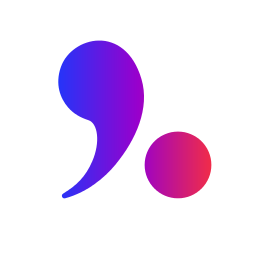How to talk about being sick in German

If you are living in Germany, one day you might be sick and need assistance. In Germany, doctor visits are only possible if you have valid health insurance (die Krankenversicherung) and you need to hand in sick leave (die Krankmeldung) written by a doctor, usually after three days of sickness. Most Doctors will be able to talk basic English, but it is always better to know German phrases if the nurses or doctors are not able to respond to you. Today, I will give you basic knowledge about medical vocabulary and how to talk about being sick in German.
- Visiting a doctor in Germany
- Vocabulary for the doctor's office
- Emergencies in German
- How to tell your boss that you’re sick
Learn languages at your pace
Visiting a doctor in Germany
Making a doctor's appointment in Germany
Doctors in Germany usually have consultation hours (die Sprechstunde) where you can just drop in. Often these consultation hours are very busy and you might have to wait for a long time, which can be quite exhausting if you don’t feel well. It makes sense to call them beforehand and they either give you an appointment or tell you to come at a specific time to reduce the waiting time.
You can ask them on the phone:
"Ich hätte gerne einen Termin. Wann kann ich vorbeikommen?" – I would like to have an appointment. When can I come over?
"Wann ist Ihre Sprechstunde?" – What time are your consultation hours?
"Ich würde gern einen Termin machen." – I would like to book an appointment.
The nurse will ask you on the phone already what assistance you need or what is wrong. You can answer:
If you have pain in a certain spot you can also say:
"Mir tut der Bauch weh." – My tummy/stomach hurts.
"Ich habe mich verletzt." – I have injured myself
"Ich habe eine Verletzung am Bein." – I have an injury on my leg.
"Ich hatte einen Unfall." – I had an accident.
"Ich fühle mich schlecht. Ich habe ____ "– I am feeling bad/sick. I have ____
Talking to the German-speaking receptionist
So you’ve managed to book your appointment and show up at the doctor’s office. Now you’re ready to introduce your issue and explain why you came to see Dr. Schwarz! But first, the receptionist might request the following information from you:
- Wie heißen Sie? / Ihr vollständiger Name? – What’s your name? / Your full name?
- Wie können wir Ihnen helfen? – How can we help you?
- Haben Sie Ihre Versicherungskarte dabei? – Do you have your health insurance card with you?
- Sie können Platz nehmen. / Bitte nehmen Sie Platz. – You can take a seat.
As for your side of the story…
- Ich bin Robert Steiger. / Mein Name ist Robert Steiger. – My name’s Robert Steiger.
- Ich habe um 11 Uhr einen Termin bei Dr.Schwarz. – I have an appointment with Dr. Schwarz at 11 o’clock.)
- Wir haben gestern miteinander telefoniert. – We spoke on the phone yesterday.
- Wo sind die Toiletten? – Where are the toilets?
- Soll ich hier warten? – Should I wait here?
- Hier ist meine Krankenversicherungskarte. – Here is my health insurance card.
- Wo ist das Büro von Dr.Schwarz? – Where’s Dr.Schwarz’s consulting room?
Symptoms of sickness in German
As is the case with other languages, you’ll heavily rely on the verb “to have” (haben) to explain your symptoms in German. However, when talking about aches (toothache, belly ache, headache…) you’ll be using a plural, not a singular (Schmerzen, which means “pains”, instead of Schmerz). Let’s look at some examples so everything becomes clearer:
- Ich habe Kopfschmerzen. – I have a headache.
- Ich habe Bauchschmerzen. – I have a stomachache.
- Ich habe Ohrenschmerzen. – I have an earache.
- Ich habe Halsschmerzen. – I have a throat ache.
Easier than it seems, right? As for other common problems, here’s a short list for your convenience:
- Ich habe Fieber. – I have a fever.
- Mir ist schwindelig. – I’m feeling dizzy.
- Ich habe Anzeichen einer Grippe. – I have signs of a flu.
- Ich kann nichts essen. – I can’t eat anything.
- Ich habe Schwierigkeiten zu atmen. – I have trouble breathing.
- Ich habe Husten. – I have a cough.
- Ich kann mich nicht bewegen. – I can’t move.
- Ich kann nicht aufhören zu zittern. – I can’t stop shaking.
- Mein ganzer Körper juckt. – My entire body is itching.
- Ich habe keine Energie. – I have no energy.
But what if you need to tell your doctor about special conditions? If you’re pregnant, you should say “Ich bin schwanger”. If you’re allergic to something, you should use the expression “Ich bin allergisch gegen…”. For instance, you can say “Ich bin allergisch gegen Penicillin.” (I’m allergic to penicillin) or “Ich bin allergisch gegen dieses Medikament.” (I’m allergic to this medicine).
Vocabulary for the doctor's office
Your doctor will ask you about your situation and symptoms. Let’s look at some questions you might be asked depending on the context:
- Was ist los? Wie fühlen Sie sich? – What’s wrong? How do you feel?
- Welche Symptome haben Sie? – What symptoms do you have?
- Wie oft spüren Sie diese Symptome? – How frequently do you feel these symptoms?
- Haben Sie irgendwelche Allergien? – Do you have any allergies?
- Ist es das erste Mal, dass Ihnen sowas passiert ist? – Is this the first time this has happened to you?
- Welche Medizin nehmen Sie gerade ein? – What medicine are you taking right now?
- Wie ist die Krankengeschichte Ihrer Familie? – What’s your family’s medical history?
- Wie lange ist es her, dass Sie das letzte mal beim Arzt waren? – How long has it been since you’ve last visited the doctor?
In Germany, it’s very likely the doctor will address you formally. You’ll notice verbs look quite different in a casual conversation, and that’s normal!
Understanding solutions given by your doctor
Depending on your problem, Dr. Schwarz is ready to send you your way with some practical suggestions! Here are some of them:
- Das sollte sich ein Spezialisten ansehen. – A specialist should have a look at this.
- Nehmen Sie dieses Medikament einmal täglich ein. – Take this medicine once a day.
- Trinken Sie keinen Alkohol. – Don’t drink alcohol.
- Fragen Sie in der Apotheke nach diesem Medikament. / Kaufen Sie dieses Medikament in der Apotheke. (Ask for this medicine at the pharmacy. / Buy this medicine at the pharmacy.
- Sie müssen ins Krankenhaus gehen. – You have to go to the hospital.
- Wir müssen einen Test durchführen lassen. – We’ll have to get a test done.
- Wir müssen Blutuntersuchungen durchführen. – We’ll have to get blood work done.
Learn languages at your pace
Emergencies in German
If you happen to have an emergency, you can use these phrases to make people aware that you need help:
"Entschuldigung, ich brauche Hilfe!" – Excuse me, I need help.
"Können Sie mir helfen?" – Can you help me?
"Ich hatte einen Unfall, ich brauche einen Arzt!" – I had an accident, I need a doctor!
"Wo finde ich den nächsten Arzt? /die nächste Apotheke?" – Where can I find the next Doctor/pharmacy?
How to tell your boss that you’re sick
After or before you went to the doctor and got your German sick leave letter, you will have to tell your company that you will not come to work until you feel better.
In Germany there is a cultural rule of “sick is sick”. Do not attempt to go to work if you are really sick. If you still do so, your boss might send you back home.
You have to notify your boss immediately about being sick. The sick leave can be handed in within three days.
You can tell your boss:
"Es tut mir leid aber ich kann heute nicht arbeiten." – I am really sorry but I cannot come to work today.
"Ich bin krank." – I am sick.
"Ich muss mich leider krank melden." – Unfortunately I have to call in sick.
Your boss will probably respond:
"Werd schnell gesund!" – Get well quickly.
Last but not least, how to say "get well soon" in German? "Gute Besserung."













